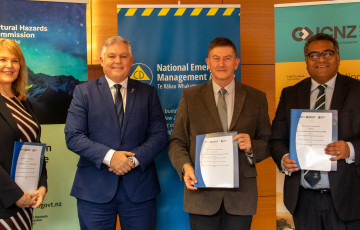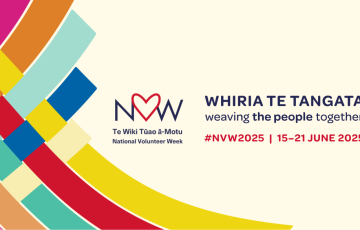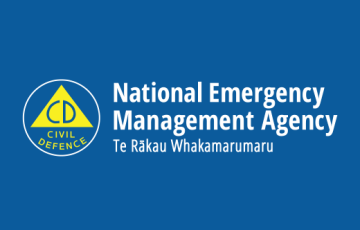Resilience Fund awards harness community expertise
Grass-roots projects to help communities respond to a large earthquake on the South Island’s Alpine Fault are among this year’s recipients of Civil Defence Emergency Management (CDEM) Resilience Fund grants.
The Resilience Fund is distributed on an annual basis and will allocate $844,000 to eight projects. Applications were considered by a panel against criteria with emphasis on improved collaboration, improved resilience locally and regionally, and consistent approaches.
"There was strong competition for funding this year, and the successful projects will boost New Zealand’s resilience to major events," Kieran McAnulty said.
“The Resilience Fund taps the incredible resource of expertise we have in New Zealand and helps CDEM Groups test new ideas to benefit all New Zealanders.
“Many of the funds are connected to the Alpine Fault resilience work. We know from the latest scientific research that the Alpine Fault has a 75 percent chance of a major rupture within the next 50 years.
“An earthquake like that would have major impacts for the South Island and beyond, and this funding will help boost infrastructure resilience, enable isolated communities to quickly communicate with emergency responders and increase public awareness of the hazard.
“We’re also glad to be able to continue to support the AF8 project, which has done such vital work in helping us understand the Alpine Fault,” Kieran McAnulty said.
The Resilience Fund has previously enabled valuable projects including the AF8 Alpine Fault earthquake response plan, East Coast LAB (Life at the Boundary) and the Marae Preparedness Toolkit.
“New Zealand faces a range of natural hazards. Cyclone Gabrielle this year was a powerful reminder of the extraordinary damage that natural hazards can cause to people’s lives and properties. It is so important that we continue to fund projects that will keep us all safer.”
The eight successful applications are:
- A continuation of the AF8 (Alpine Fault magnitude 8) programme, including public education and iwi-led initiatives (lead agency: Southland CDEM, $200,000)
- Improving emergency access to fuel supply and emergency power on the West Coast in an AF8 event (lead agency: West Coast Regional Council, $148,038.44)
- A pilot programme providing Starlink satellite internet terminals to community hubs, providing public wi-fi access (lead agency: Wellington Region Emergency Management Office, $100,000)
- Developing a Geographic Information System (GIS) application to apply results of vulnerability modelling for local roads and state highways after an AF8 event, so priority corridors in the roading network can be established (lead agency: Canterbury CDEM, $100,000)
- Expanding GIS portal coverage to the wider Canterbury region and include additional lifelines, focusing on ports, airports, fuel, and fast-moving consumer goods. This will improve understanding of how these systems are interconnected, and how infrastructure failure can cause cascading impacts for the social, economic, environmental and culture wellbeing of communities (lead agency: Canterbury CDEM, $150,000)
- A project to understand facilitators and barriers to tsunami evacuation in Hawke’s Bay and recommend best practice communication for Hawke’s Bay and Aotearoa (lead agency: Hawke’s Bay CDEM Disaster Risk Reduction Team, $67,560)
- Continued support to multi-lingual children’s storybooks about storms and flooding (lead agency: Auckland Emergency Management, $43,000)
- Upgrading a Registration and Needs Assessment system developed by Taranaki so it can be shared with other CDEM groups (lead agency: Taranaki CDEM, $35,200).
Published: Jul 26, 2023, 3:31 PM



